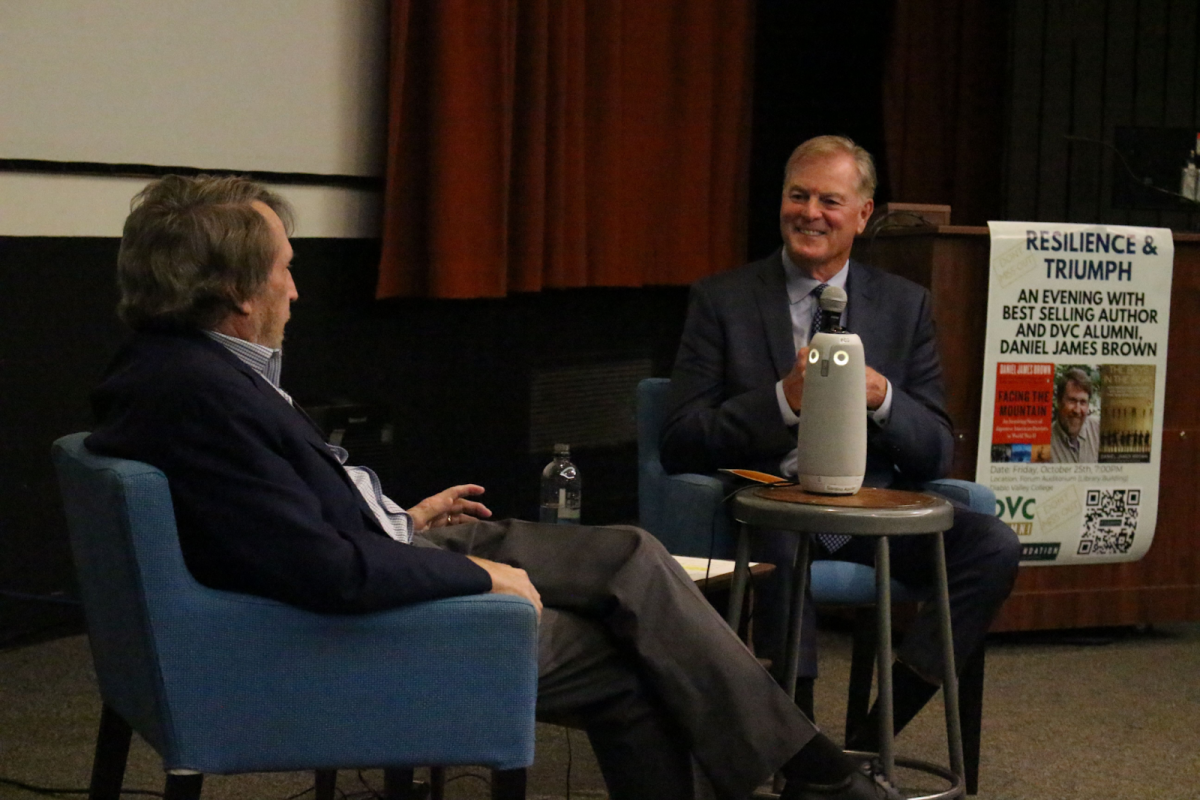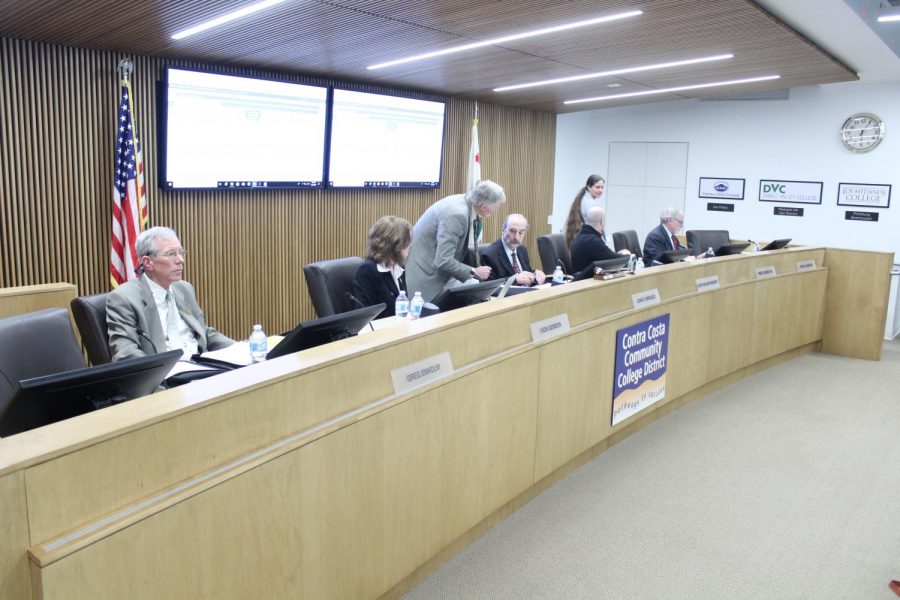Governing Board Misconduct: 4CD Trustee Censured for Violating Code of Ethics At Public Meeting
4CD Board Meeting
May 19, 2021
On April 28, the five-person Governing Board for the Contra Costa Community College District censured one of its members, John Marquez, for making unsubstantiated public comments about the district’s chief human resources officer, Dio Shipp. The censure, proposed by board trustee Judy Walters, asserted that Marquez’s actions could, among other things, negatively impact the accreditation of 4CD colleges and increase the district’s “legal exposure.”
According to the board’s meeting protocols, discussions about district employees are to be done in closed sessions. By speaking publicly about Shipp at a March 24 board meeting, the Governing Board said Marquez had violated its code of ethics, communication rules, meeting procedures and California law.
The Inquirer reached out for comment Marquez, but received no response.
This is only the latest incident in which 4CD board members have been charged with misconduct, including Marquez. In September 2020, the Academic and Classified senates of Diablo Valley College approved a joint resolution denouncing trustees Gregory Enholm, Victoria Gordon and Marquez, saying that their behavior, like not renewing the contracts of senior 4CD administrators during the pandemic, “jeopardize[d]” the district’s finances and the accreditation of its three colleges.
Enholm and Gordon lost their races for reelection in November 2020 to Fernando Sandoval and Walters, respectively.
Fears that 4CD colleges could worsen their accreditation status were heightened when the Accrediting Commission for Community and Junior Colleges, the body tasked with evaluating the schools in the 4CD, issued a warning to DVC in February 2021. In its report about the college, the ACCJC highlighted five areas of concern, four of which were related to the board’s behavior. These included a recommendation that the board do a better job following its own code of ethics, citing that multiple board members felt “bullied” by their fellow trustees.
DVC President Susan Lamb said the reason the ACCJC issued a warning to DVC over the Governing Board’s actions was because the board is responsible for the district’s finances and overall academic quality, which impacts DVC.
Explaining the importance of accreditation, President Lamb said that being accredited allows a college to access federal funds and “recognizes us as an institution where students receive a certain level of education.” It’s the reason why another university or an employer takes a degree from DVC seriously.
Despite the warning, Becky Opsata, DVC’s dean of institutional effectiveness and accreditation, said the college remains accredited. Opsata told The Inquirer, “There are different levels of warning that you have to go through before something bad happens. We are nowhere near that point.”
After receiving the warning in February, Opsata said DVC must send a follow-up report this fall that explains how the college has addressed the ACCJC’s concerns. Talking about Marquez’s recent conduct, she said, “It’s not great. It’s certainly not what you want to [have] happen.”
However, she added that the board’s censure of Marquez was a step in the right direction. “It shows that they are taking [the ACCJC’s warning] seriously,” said Opsata. “It shows that they are paying attention to it, and that the rest of the board is behaving reasonably.”
Beyond accreditation, the board also noted that the district could incur unexpected legal expenses because of Marquez’s comments. Neal Skapura, the president of the 4CD union for classified staff, said, “These actions just pointlessly create tensions and waste monies in our reserves, and that is the unacceptable part. [The] 4CD has insurance to cover these types of legal expenses, but the 4CD still has to pay a portion of the costs.”
Before approving the censure, the board’s president, Andy Li, said that Marquez was “genuinely apologetic for his behavior.” However, according to Skapura, Marquez’s comments in March 2021 were “reckless” because Marquez made similarly unsubstantiated claims about Shipp in August 2020. Skapura said this context may affect how much the district would have to pay if a lawsuit were filed.
As of this writing, the district’s chancellor, Bryan Reece, said that no legal action had been taken against the 4CD because of Marquez’s comments.
Connecting what is happening at the board level to the impact on 4CD students, Skapura said any district dollars lost in a potential lawsuit would be money unavailable for more meaningful projects.
TimelyMD, a free, round-the-clock telehealth service for DVC students that was launched and largely funded by the college’s student government (ASDVC) this semester, could be an example of one of those tradeoffs. Gerardo “Panda” De La Torre, the chair of ASDVC’s environmental affairs committee, said that while it’s currently available to students, TimelyMD’s future is dependent on either the district or DVC coming up with funding for the project, rather than ASDVC.
“[TimelyMD] exists because it is an ASDVC initiative, because we have the money,” said De La Torre. But, “this isn’t sustainable by ASDVC, not legitimately in the long term.”
Reflecting on the broader impact of Marquez’s comments, Skapura said, “It looks bad. It [potentially] costs money, and it simply means the district will have to do additional work to demonstrate that they are correcting the sanctions the ACCJC brought against us.”
*Disclosure: The author of this article was a part of ASDVC this semester, and participated in discussions and decisions about TimelyMD.












































































